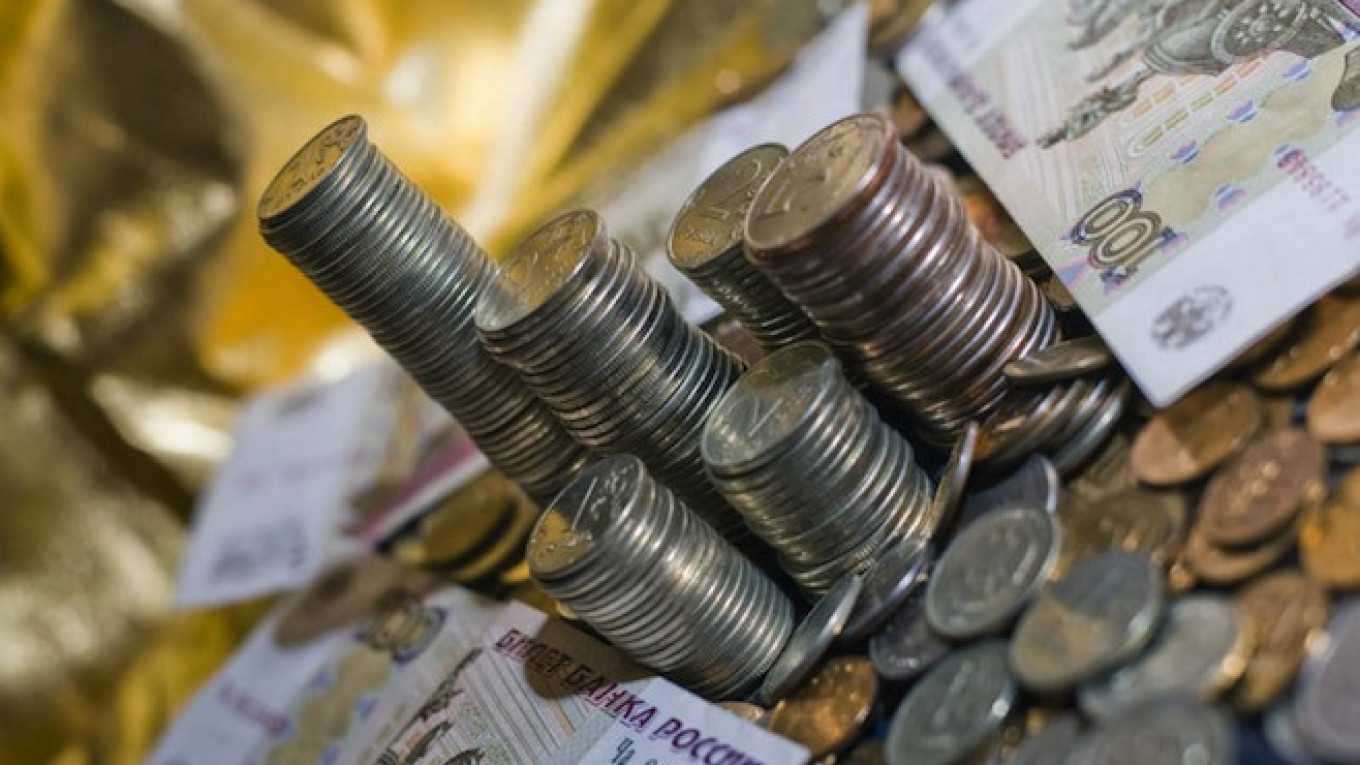The ruble and Russian shares fell on Monday as the oil price tumbled to a five-year low and the Central Bank appeared to refrain from interventions in the currency market.
At 8:27 p.m. Moscow time, the ruble was down 2.4 percent against the dollar at 53.66 and down 2.3 percent against the euro at 65.80.
? The ruble-based MICEX share index was down 3.13 percent at 1,481 points and the dollar-based RTS was down 4.22 percent at 870 points, having earlier set a five-year low of 872.
The price for Brent crude was down almost 3 percent at 67.15, having earlier dipped below $67 per barrel for the first time since September 2009. Oil and gas account for around 70 percent of Russia's exports.
On Friday, the ruble had closed up 3 percent against the dollar. That was linked to Central Bank interventions to support the currency, traders said, but there was little sign of more interventions so far on Monday.
"The ruble only has one support — interventions from the Central Bank, without which at such an oil price the movement can only be down," said Andrei Mishko, head of forex at National Standard Bank.
"The Central Bank could appear at any moment, but this would be strange today, when oil is falling and commodity currencies are down."
The Central Bank said Monday that it had not carried out any interventions on Thursday. The bank releases interventions data with a two-day delay. This follows $700 million in interventions last Monday and $1.9 billion on Wednesday.
Analysts at Alfa Bank estimated the bank's interventions came to $4 billion last week. They questioned the logic of the policy just a month after the bank floated the ruble.
"As pressure on the ruble coincided with the continuing decline in oil prices and appreciation of the dollar on global markets, we believe that CBR interventions will be fruitless if these two trends prevail. The CBR's best action now would be a new increase in the key policy rate," Alfa Bank analysts said in a note.
The Central Bank board meets on Thursday to discuss interest rate policy, with opinions divided on whether the bank will increase its main lending rate further following a 1.5 point increase to 9.5 percent in October.
A Message from The Moscow Times:
Dear readers,
We are facing unprecedented challenges. Russia's Prosecutor General's Office has designated The Moscow Times as an "undesirable" organization, criminalizing our work and putting our staff at risk of prosecution. This follows our earlier unjust labeling as a "foreign agent."
These actions are direct attempts to silence independent journalism in Russia. The authorities claim our work "discredits the decisions of the Russian leadership." We see things differently: we strive to provide accurate, unbiased reporting on Russia.
We, the journalists of The Moscow Times, refuse to be silenced. But to continue our work, we need your help.
Your support, no matter how small, makes a world of difference. If you can, please support us monthly starting from just $2. It's quick to set up, and every contribution makes a significant impact.
By supporting The Moscow Times, you're defending open, independent journalism in the face of repression. Thank you for standing with us.
Remind me later.


